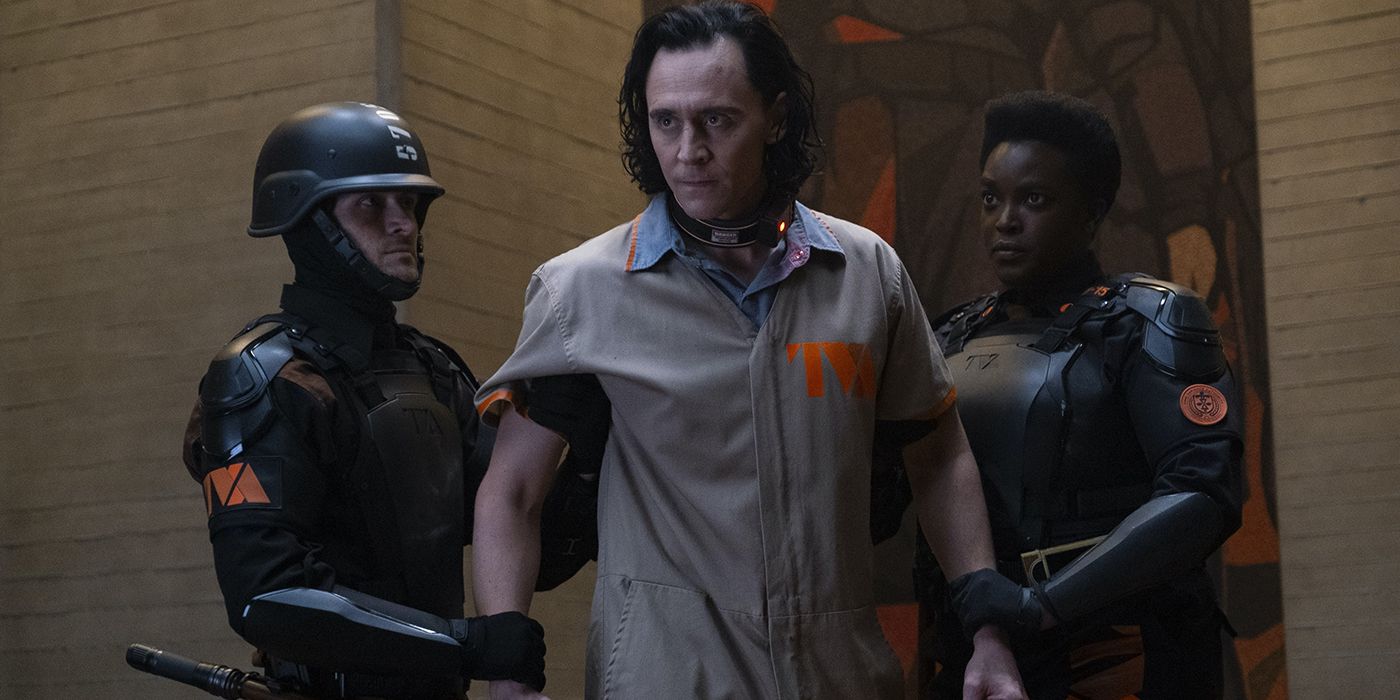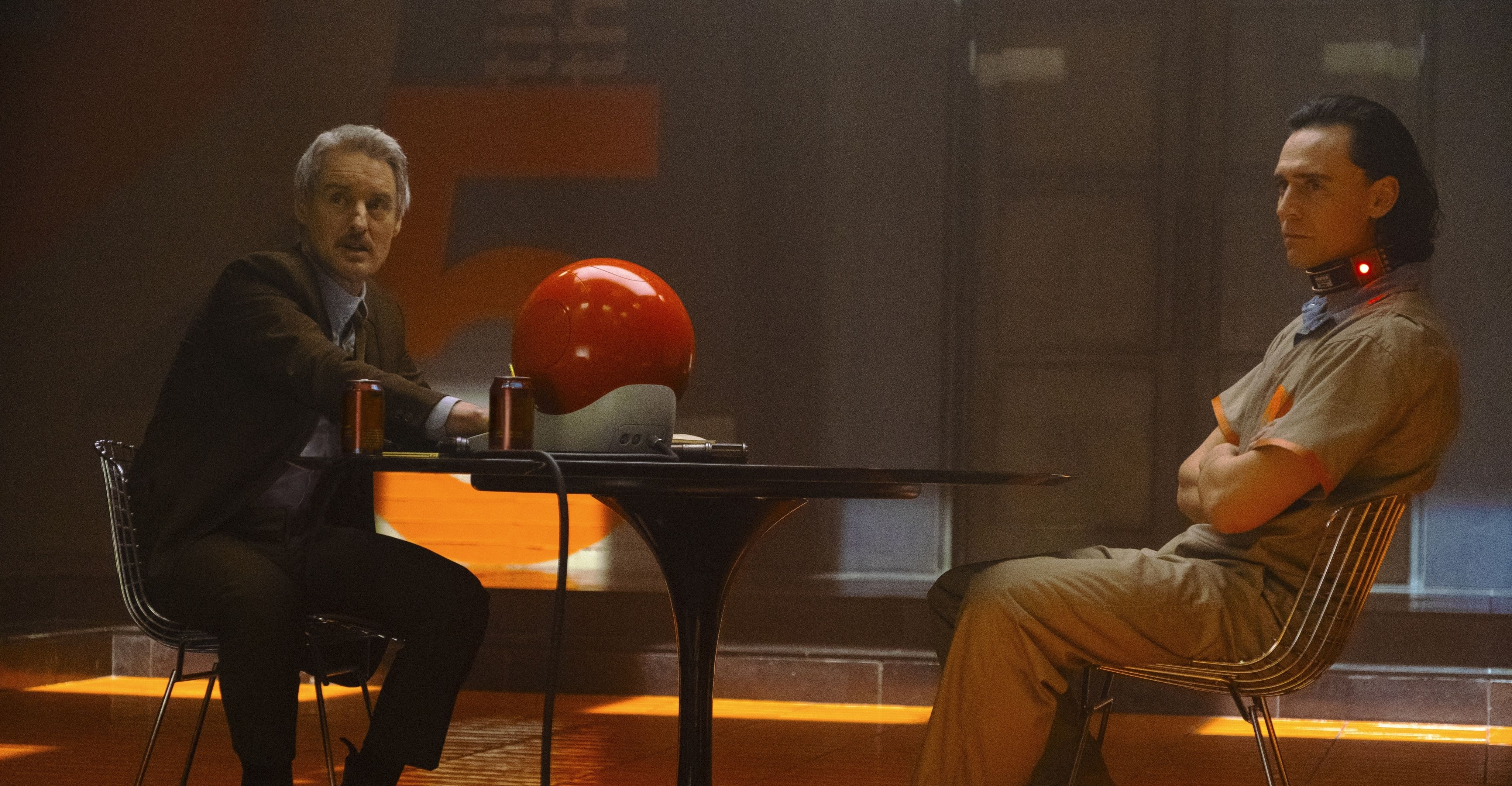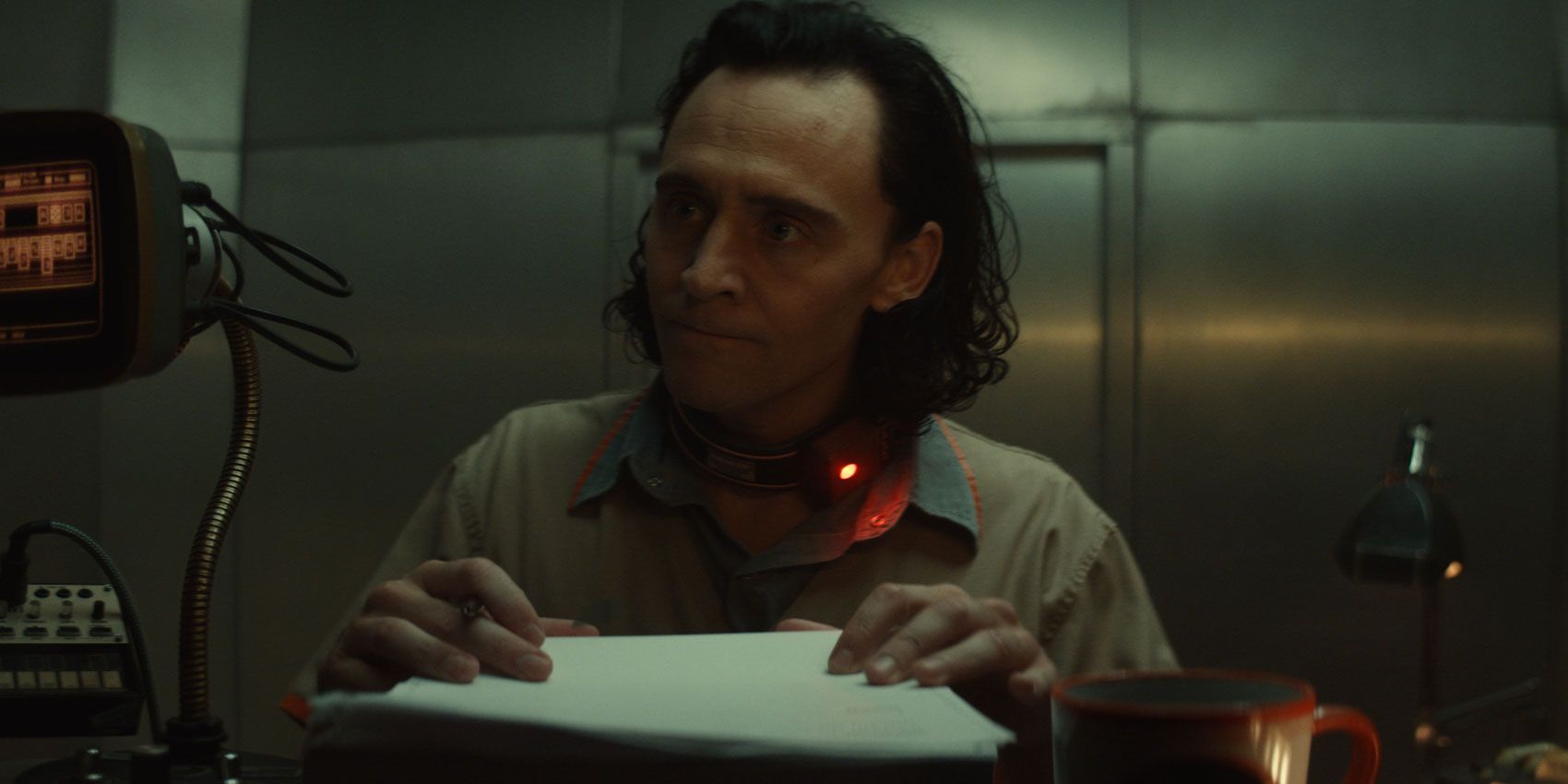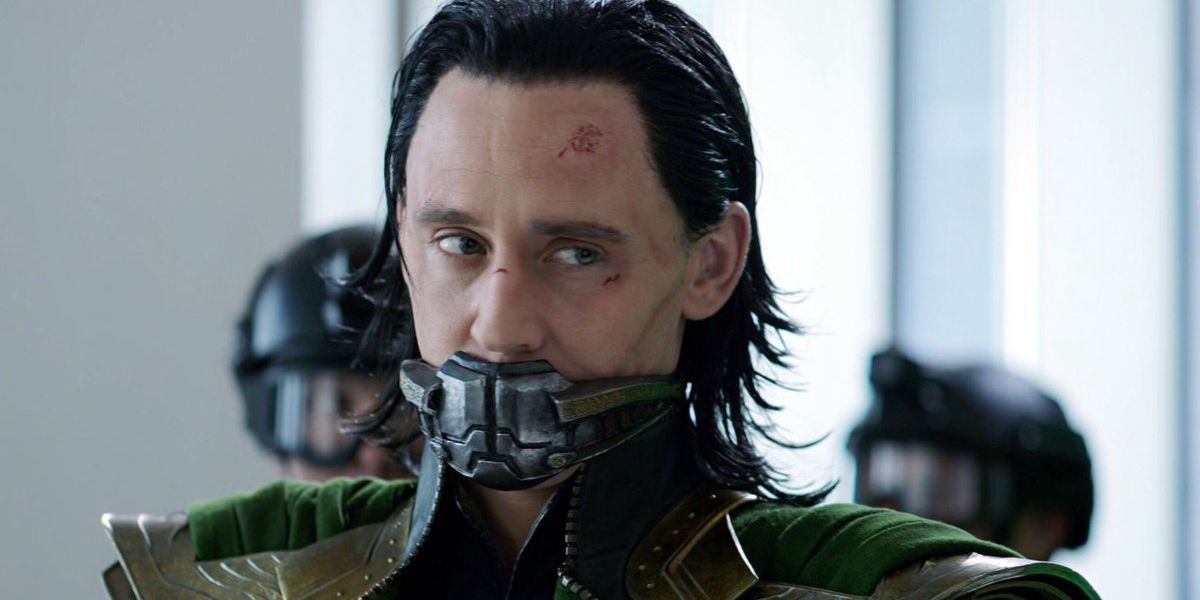The original six-episode Disney+ streaming series Loki follows everyone’s favorite villain, who has previously appeared in six films in the Marvel Cinematic Universe, as he steps out of his brother’s shadow only to find himself stuck in the bureaucracy of the Time Variance Authority (TVA). Stripped of everything but his own ego, the God of Mischief (Tom Hiddleston) must face the consequences of his actions in a way he never thought possible while also helping a TVA agent named Mobius (Owen Wilson) solve a serious crime.
During a virtual conference to promote the new series, co-stars Tom Hiddleston, Owen Wilson, Gugu Mbatha-Raw and Wunmi Mosaku, along with Marvel’s Kevin Feige talked about how this project evolved, what it’s like to join the MCU, exploring the growth of the fan favorite character, the crime thriller aspect, receiving Loki Lectures, and the character’s incredible fan base.
Question: Tom, what was it like to go from thinking you’d probably played Loki for the last time to learning that you’d get your own show?
TOM HIDDLESTON: It was a combination of delight and surprise, is probably the accurate way of describing it. I was so excited by the idea, but also, I had to scratch my head a bit because that scene in Avengers: Infinity War felt so final and so conclusive, as the end of Loki’s story. But I knew that Avengers: Endgame was coming around the corner and in that scene in that film, Loki picks up the Tesseract and disappears in a puff of smoke. Where does he go? When does he go? How does he get there? Kevin [Feige], Louis D’Esposito and Victoria Alonso all reassured me that would be the starting point of the series. There were so many places we could go and so many possibilities to think about. And then, everybody jumped on and had so many brilliant ideas and created this new show, which I think is really exciting. I’m happy to be doing it.
Kevin, did you always know that you were going to do something with Loki, down the line? When did you know that you were going to give him his own show, and did you know where and when he was going to go, after Endgame?
KEVIN FEIGE: I think we did not know it when we shot Infinity War, but I think we did know it when we shot Endgame. That’s my recollection of it. What that meant and where that specifically would go, we didn’t know. But one of my favorite things, coming out of Endgame, was people saying that we forgot to tie up the loose end of Loki. Loki just disappeared and we forgot to mention what happened to him, at the end of that movie. At that point, we did know that Disney+ was coming and the show was coming, and it became very exciting to make people wait until we figured out what the show would be and unveil it to the world.
Owen, how does it feel to be a part of the MCU?
OWEN WILSON: It’s exciting to be a part of it. I’ve worked on a lot of things, but the secrecy surrounding this, I didn’t quite understand until I saw that the fan base is so revved up and passionate and marvel is so committed to trying to surprise people. There are some very shocking things that are gonna happen.
Gugu, when you signed on to play Judge Ravonna Renslayer, did Marvel send you a bunch of source material for research? How did you approach playing her?
GUGU MBATHA-RAW: Kate [Herron] explained to me that this was more of an origin story for Ravonna Renslayer, pre-dating some of the stuff in the comics. All of that stuff is there, but there was also the opportunity to feel like we were starting with something fresh with the TVA, that hadn’t been seen before by fans on screen. There’s so much there that I feel like there’s plenty of potential for her in the future as well.
Wunmi, how did you approach playing a new character, Hunter B-15? Did you have some freedom to develop her?
WUNMI MOSAKU: Yeah, and no pressure because no one has got any ideas of what they want her to be. I can bring you who she is, and you have to accept it. That’s just how it is. I like that because it does feel like a bit of pressure when you’re joining the MCU because it’s the MCU. Being able to just have a clear slate and just do whatever I wanna do, it’s great. It’s fun and free.
Loki has always been a bit of a misunderstood villain. What do you hope audience will take away from the extended story of Loki and his exploration of growth in this series?
HIDDLESTON: That’s a great question. What I love about the series is that Loki is stripped of everything that’s familiar to him. Thor is not close by. Asgard seems some distance away. The Avengers, for the time being, aren’t in sight. He’s stripped of his status and power. If you take all of those things that Loki has used to identify himself over the last six movies, what remains of Loki? Who is he, within or outside of all of those things? Those questions became, for all of us, really fascinating to ask. What makes Loki, Loki? If there is something authentic or something at the center of him, is he capable of growth? Is he capable of change? Do his experiences within the TVA give him any insight into who he might be, this mercurial shape shifter who never presents the same exterior twice? I hope the audience get a kick out of where we take him.
Kevin, what were some of your inspirations for the crime thriller aspect of the show?
FEIGE: The inspiration was Kate. We knew we wanted to do a Tom Hiddleston/Loki series. We knew we wanted to have time travel elements. Our producer Stephen Broussard and our other producer Kevin Wright and I were always fans of this Time Variance Authority organization from the comics for years and years. We loved the idea of it, but just didn’t know exactly what to do with it, before Kevin and Stephen had the idea of putting it as a major part of this show. But it was really Kate’s meetings with us and her pitch that brought in all of those references and allowed us to look at this in a slightly different genre than we were anticipating.
Did you have any specific time periods that you wanted to explore in this?
FEIGE: Early on, we did. Early on, there was the low-hanging fruit. For a short film, there were ideas going back almost a decade for Loki running a Studio 54 in the ‘70s. I think we had some concept art of him on a horse. Thankfully, thanks to Michael [Waldron] and Kate, the show became infinitely more interesting than that and the time periods are almost secondary to the story itself.
Owen, after years of making comedy and drama, how were you convinced to join the superhero genre?
WILSON: Well, it didn’t take much convincing. It was really the conversation that Kate and I had, that was a very comprehensive phone call where Kate really walked me through the whole idea for the show and the dynamic between Mobius and Loki. It really was such an engaging phone call that I think I signed on right then.
Wunmi, how excited are you to be a part of Loki and how did you prepare for the role?
MOSAKU: I was so excited. I didn’t know I was auditioning for Loki. I had been given some dummy sides for my audition, sent it in to the ether, and thought, “It’s top secret, so it’s probably really important.” Then, I got a phone call in the middle of the night, saying that I’d been offered a part in Loki. I was like, “When did I audition for Loki? Okay. Yeah, sure.” It was really exciting. I know Tom and Gugu. We went to drama school. So, even though the idea of joining the MCU was terrifying because it’s this huge thing, knowing that I was gonna walk into the room and have friends there – I’ve known Tom since I was 18, my first year at RADA – felt really, really good. It was a little bit daunting still because there is a thing about acting with your third-year. There was something in that, but it was great. I love it.
Gugu, did that inform the relationship between Judge Renslayer and Loki?
MBATHA-RAW: Yeah, it’s so weird, the circle of life and the RADA reunion. There is a comfort, and I’m so proud of everyone. It’s wonderful to see your generation rise. Stepping into these surreal, epic, larger than life worlds, when you have a shared experience and you remember the same acting tutors and you’ve walked down the same corridor in the same canteen and we all have the same cultural references, especially as we were shooting during the pandemic, it was a real comfort to have these long-standing relationships and friendships.
Did you know that you were auditioning for Loki?
MBATHA-RAW: I didn’t actually audition. I had a long chat with Kate initially, on the phone. It was so thorough and so passionate, with so many details. I did know it was Loki, I have to say. But it was a whole other aspect of the MCU, with the TVA. That was a lot to get my head around at first, but so exciting.
HIDDLESTON: Ten years ago, I didn’t know it was Loki. Maybe that’s the thing. When you join Loki, you don’t know that it’s Loki. You think it’s something else.
Kevin, how did Thor and Loki become two of the funniest characters in the Marvel universe?
FEIGE: I think they all have a certain amount of humor in the comics, over the many decades. But the answer comes down to the performers and to the remarkable talents of Mr. Hemsworth and Mr. Hiddleston, and the range of talents, to be very RADA trained, Shakespearian, and also hilarious. In the case of Hemsworth, he has the dramatic chops and humor, and embraces all of the above. It wasn’t necessarily a conscious plan to say, “Let’s make them even funnier now.” They have always been funny. We took that from behind the scenes and put it on camera, over the more recent years.
Tom, is there an extra sense of gravity in playing Loki, now that the character is one of the longest tenured in the MCU? How did that impact your performance?
HIDDLESTON: I just love playing the character, and I always have. I’m so fortunate that I’m still here and that there are still new aspects of the character. I think he’s a character of huge range, so it never feels like the same experience. Particularly this time around, I was surrounded by these amazing people, truly. That’s not something that’s lost on me. All of my conversations with Kevin and Kate and Michael, and my interactions with Owen and Gugu and Wunmi, we just had a really good time. Because of Loki’s complexity, every time he’s in new dynamics, new stuff emerges. I’m just amazed and I’m like, “This is a comedy?” I think Loki would be quite surprised by that.
Loki and Mobius form a special bond in this show. Did you guys do anything behind the scenes to build that?
WILSON: We talked about it. Before we started filming, Tom very generously and patiently took me through the whole MCU mythology and Loki. We were calling them the Loki Lectures, and he let me ask questions. I think that was really important and really helpful to our dynamic, once we started filming the scenes. Some of our conversations, when we were going over that stuff, worked its way in. That was really helpful to me, going to Loki school before we began.
HIDDLESTON: It was such an interesting time, trying to compress the experience of my time in the MCU in six movies. Mobius is an expert in Loki. He knows more about Loki than Loki does. I was trying to help Owen with some of my memories about my experience, and Owen asked such insightful, intelligent questions that made me rethink various aspects of the character. I think our conversations found their way into the scenes themselves, which is really nice. And then, in the interactions, because they’re quite intense conversations, we used to talk about it feeling a bit like a play.
WILSON: It really was almost a chess match a little bit, with Mobius and Loki. To stay on equal footing with the God of Mischief, I had to rely on this awesome weight of the TVA behind me, and that’s pretty formidable while Loki is clearly playing catch-up. The scenes were fun to do. They were long scenes, so we wondered if they would be boring. That’s where it started to feel a bit like a play. Hopefully, they have some tension and humor. They were fun to do.
Gugu and Wunmi, did you have your own Loki Lectures experience?
MBATHA-RAW: I think I was in London when the Loki Lectures happened. I missed it. Tom helped me with some pronunciations of a few things. It’s great just to have Tom on hand, just as our leader and encyclopedia.
MOSAKU: I missed all of the Loki Lectures. I got a Marvel lecture from Kate, that went from Iron Man to the season finale of Loki and how we all fit in. I watched the films. Tom filled me in on Loki and I got some gossip.
Tom, what was it like to revisit the character, in that way?
HIDDLESTON: With every department, whether it was camera or stunts or costume design and production design, the series was gonna touch on so many different aspects of Loki’s history. They were curious about so many different decisions that have been made by everybody who had been the inspiration for what had come before, from Kenneth Branagh and Alex Byrne and Bo Welch to Charlie Wood and Mayes Rubeo and Taiki Waititi and Joe & Anthony Russo, and all of these people who had contributed to Loki’s story. There were questions about why his costume changes, or the adaptation to his choreography, or changes in the dramatic arc. I hope that when the show unfolds, the specificity or the precision about these different aspects of Loki might become clearer. People wanted to know about the horns. There was a question of, when does Loki wear the horns? Why does he wear them? Is it a ceremonial thing, or are they somehow an extension of some emotional connection? Is he particularly malevolent at those times? It was interesting to be asked these questions from outside the experience. All will become clear in time.
What has surprised you the most about Loki’s incredible fan base?
HIDDLESTON: There’s no question that the reason I am allowed to continue to play him is because he clearly means so much to so many people, and for so many different reasons. That is incredibly gratifying for me. I see that as a big honor. Over time, I’ve been made aware of the different things he represents to people. Some people enjoy his playfulness and his spontaneity and that inherent sense of mischief that he has. Some people enjoy his quality as an antagonist. Some people probably can’t stand him. I don’t know. I know there are some people that are drawn to his vulnerability. Underneath all of those layers of charm and charisma and playfulness is a vulnerability and a sense of some very relatable human thing about being vulnerable, and I owe that to the writers. I owe that to everybody who’s ever written this character, including everybody who’s ever written the character in the comic books, starting with Stan Lee and Jack Kirby, and going all the way through J. Michael Straczynski, up to Daniel Kibblesmith. I owe it to Don Payne, who wrote the first Thor movie and did the most extraordinary job of making Loki a character with such pathos, all the way through to Michael and his amazing team of Eric Martin, Bisha K. Ali, and all of the guys who put their heads together to think about this character. I just feel like it’s a huge honor.
Loki is available to stream at Disney+, with new episodes available on Wednesdays.




